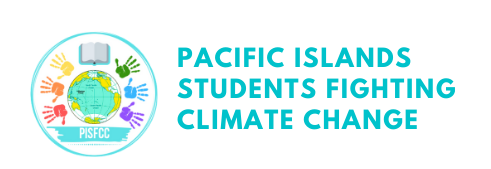PISFCC Director Brings the Voices Of Frontline Communities to the International Court of Justice
The Hague - Today 13 December 2024, marked a major milestone in the global climate justice movement as Vishal Prasad, Director of Pacific Island Students Fighting Climate Change (PISFCC), delivered a compelling statement to the International Court of Justice (ICJ) during the ongoing #ClimateICJAO oral hearings.
Representing the voices of those living in the frontline of this crisis, he articulated the urgent need for climate accountability and emphasised the human rights implications of climate inaction.
Speaking with heartfelt conviction, Vishal began his address by drawing on the rich cultural heritage of Pacific Islanders. He spoke of traditional wayfinding practices not just as navigation techniques but as a profound connection between past and future generations, setting the stage for his call for intergenerational climate justice.
"In the Pacific, we have always looked to the stars. Our ancestors navigated the vastness of the ocean and traveled immense distances. They trusted in the stars and wisdom of those who came before them," said Prasad, establishing a cultural foundation for his legal arguments.
"This practice of wayfinding is more than just a method of navigation; it is a relationship. It connects those who came before with those who will follow. Every decision mattered not only for the journey in that moment but for the future that it shaped."
Prasad’s statement highlighted the inadequacy of current climate action frameworks, particularly criticising the COP processes for failing to deliver meaningful progress despite overwhelming scientific evidence.
He emphasised that international legal obligations extend beyond the Paris Agreement and UNFCCC, encompassing duties to prevent transboundary harm, uphold self-determination, and protect human rights of present and future generations. This historic moment has the potential to reshape global climate action by establishing legal frameworks for accountability, reparations, and emissions cessation.
In one of the most impactful moments of his address, he challenged arguments that international law need not protect "abstract persons from abstract risk," countering with devastating real-world testimonies from Pacific Islanders:
"It is not abstract that climate change violates our fundamental human right to life," he asserted, sharing the harrowing account of Lily Teafa from Tuvalu who witnessed graves being unearthed by coastal erosion during Cyclone Pam. "I saw my 16-year-old cousin cuddling towards her mother's bones. I saw a mother cry out to the Moana (ocean) searching for the corpse of her son."
Prasad further recounted Isabella Teuea from Kiribati's poignant description of environmental degradation: "The ocean, once a nurturing mother, has become a vengeful giant swallowing the land it once cradled. It no longer gives life; it now takes it inch by inch."
During his testimony, he also referenced the People's Petition, a critical document born from the People's Assembly organised specifically for those living through the devastations of climate change to share their stories and evidence. The petition compiles testimonies from frontline community representatives worldwide, documenting the real harms and suffering they have already endured due to the climate crisis. This powerful collection of voices and experiences serves as undeniable evidence of the human impact of climate change, reinforcing the urgency of the Court's deliberations.
Our Director's oral statement underscored the journey of our youth-led initiative, which began five years ago in a classroom in Emalus, Vanuatu, and has now reached the world's highest court.
His closing remarks appealed to the Court's responsibility to guide the international community toward climate justice: "Just as the way finders of the Pacific held the wisdom to guide us through the vast ocean to safe harbour, you hold the knowledge and the responsibility to guide the International Community to ensure the protection of our collective future. And you can do this simply by applying international law to the conduct responsible for climate change."
Speaking on the final day of the hearings, his powerful testimony was the conclusion of the voices for Pacific Island nations and Global South representatives who have presented compelling evidence throughout the proceedings.
The #ClimateICJAO sought by this campaign represents a crucial opportunity to clarify international legal obligations regarding climate change and could provide the legal foundation needed to drive urgent climate action worldwide.
-ends -
Watch our director’s full speech at the ICJ.
